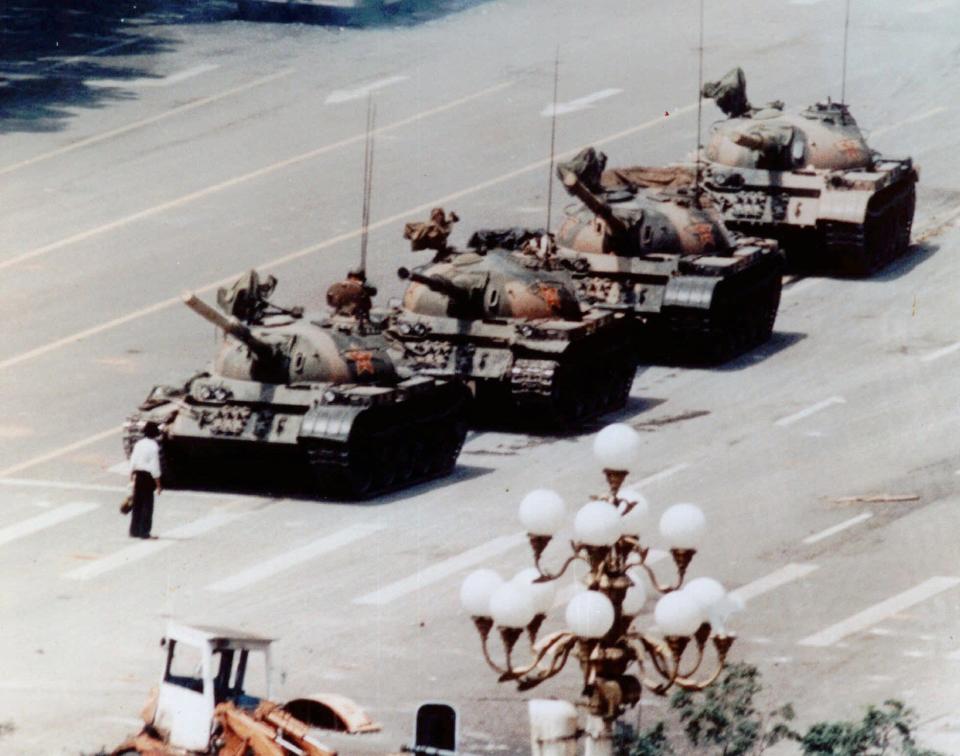China 30 years after Tiananmen Square: Xi is latest autocratic leader to block dissent

Flashback to China’s Tiananmen Square 30 years ago, to the days and weeks before the Chinese government’s brutal crackdown on June 4, 1989 — and to the very different world back then. Thousands of peaceful protesters, many camped out in tents, had reason to believe that China was on the brink of joining the democratic wave sweeping the communist world from the then-Soviet Union and Eastern Europe.
The atmosphere in Tiananmen Square was festive — so safe, I felt, that I carried my infant son, Tom, around with me as I reported on the uprising.
“We will be free!” demonstrators told me as they flashed V-for-victory signs. Their talk was of wanting basic rights, fair elections, to speak their minds. The face of one typical young man sticks in my mind, alive with enthusiasm beneath a red bandanna wrapped around his head, with the Chinese characters on it spelling out the words freedom and democracy.

Read more commentary:
Real trade war: Trump fixates on tariffs while China pursues global digital domination
Trade deal or not, US must counter China moves to beat us at science and technology
Trump's hardball tactics against China just might work
The demonstrators erected a giant papier-mache “Goddess of Democracy,” a Statue of Liberty lookalike, within sight of the giant portrait of Communist China’s 1949 founder, Chairman Mao Zedong. Some cooed over baby Tom, telling me I had the greatest fortune possible because I had given birth to a boy baby in the Chinese Year of the Dragon.
I envisaged the world baby Tom would live in. As the Tiananmen Square demonstrations showed, we, the West, had won the Cold War. Liberal democracy had triumphed over repressive communism. Game over. That summer, American scholar Francis Fukuyama outlined that assumption in his famous essay, “The End of History?”
The rest, of course, turned out to be a very different kind of history.
A China of autocrats who block dissent
I was in the square on the night of June 4, 1989, too — without my son — as the Chinese government sent in tanks and soldiers, massacring unknown thousands of peaceful protesters. I can still see a young man cradling the body of his friend who had been shot in the head. “The world has got to know!” he wailed, imploring me to tell what had happened to his friend.
That night marked not an end of history but a return to an old history, one dominated by dictatorial leaders and newly facilitated by 21st century technology.
China, three decades on, is neither a democracy as the protesters in Tiananmen Square envisioned, nor has it quite returned to the repressive brand of communism of the era of Mao or his less tyrannical successor, Deng Xiaoping.
Instead, China’s egotistical leader Xi Jinping has become Exhibit A in a trend of nationalistic autocrats bending systems to stay in power, and using technology to repress dissent and promote story lines that do not always fit with facts.
Xi has struck an implicit bargain with his countrymen: His leadership will make China great as in imperial times and put China on a path to becoming the world’s dominant economy and power; economic considerations and national interests will trump all else, particularly human rights.
Technology helps enforce this bargain by blocking dissenting voices, intrusively monitoring Chinese citizens and promoting the official line.
China’s manipulation of information and history, for example, means that few Chinese are aware of the 1989 Tiananmen Square demonstrations or massacre, or of today’s internment camps in the vast, primarily Muslim Uighur region of Xinjiang, where thousands are being held and “reeducated.”
Censorship and suppression abound
Last year, Xi managed to eliminate presidential term limits. He carefully tends his image: He is so sensitive to negative publicity that the Chinese name for Winnie-the-Pooh is one of many terms blocked on Chinese social media sites after bloggers compared Xi to the plump bear.
Xi, of course, is far from alone. He has company in countries from Russia to Syria, from Turkey to countries across Africa, and on.
The U.S. poster child of this trend is, of course, President Donald Trump. He cannot, like Xi, abolish term limits on his presidency or order protesters interned. But he still flouts norms, rules and assumptions about the United States and what it stands for. His misleading Twitter tirades, distortion of facts, challenges to congressional power and more are undermining the system he supposedly heads.
Thomas Jefferson in 1821 pronounced that “the flames kindled on the 4th of July 1776 have spread over too much of the globe to be extinguished by the feeble engines of despotism; on the contrary, they will consume these engines, and all who work them.” But will Jefferson’s assumption prove to have been two centuries too soon?
Baby Tom is now 30. After the Tiananmen Square massacre, his grandmother flew him out of danger while I stayed in Beijing and continued to report. He has had the good fortune to be an American living in the United States, schooled in U.S. history, the Constitution and other basics of what it means to be an American. But learning the basics does not guarantee them. His generation now faces a question that would have seemed preposterous 30 years ago: Whether they will need to fight for the United States not to follow Xi’s Chinese trend, rather than the other way around.
Louise Branson, a former USA TODAY editorial writer, was The (London) Sunday Times Beijing correspondent. She is a member of USA TODAY’s Board of Contributors.
You can read diverse opinions from our Board of Contributors and other writers on the Opinion front page, on Twitter @usatodayopinion and in our daily Opinion newsletter. To respond to a column, submit a comment to letters@usatoday.com.
This article originally appeared on USA TODAY: China 30 years after Tiananmen Square: Xi is latest autocratic leader to block dissent

